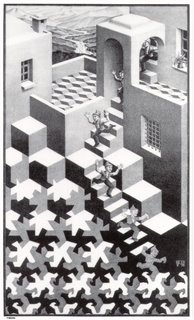
Here is an interesting group of quotes.....................PEACE........................Scott
||||||||||||||||||||||||||||||||||||||||||||||||||||||||
O Lord our Father, our young patriots, idols of our hearts, go forth to
battle - be Thou near them! With them, in spirit, we also go forth from
the sweet peace of our beloved firesides to smite the foe. O Lord our
God, help us to tear their soldiers to bloody shreds with our shells;
help us to cover their smiling fields with the pale forms of their
patriot dead; help us to drown the thunder of the guns with the shrieks
of their wounded, writhing in pain; help us to lay waste their humble
homes with a hurricane of fire; help us to wring the hearts of their
unoffending widows with unavailing grief; help us to turn them out
roofless with their little children to wander unfriended the wastes of
their desolated land in rags and hunger and thirst, sports of the sun
flames of summer and the icy winds of winter, broken in spirit, worn
with travail, imploring Thee for the refuge of the grave and denied
it-for our sakes who adore Thee, Lord, blast their hopes, blight their
lives, protract their bitter pilgrimage, make heavy their steps, water
their way with their tears, stain the white snow with the blood of their
wounded feet! We ask it, in the spirit of love, of Him Who is the Source
of Love, and Who is ever-faithful refuge and friend of all that are sore
beset and seek His aid with humble and contrite hearts. Amen. - Mark
Twain
||||||||||||||||||||||||||||||||||||||||||||||||||||||||
This debate is occurring because of, umm, the Supreme Court's ruling
that said that, uhh, we must conduct ourselves under the Common Article
III of the Geneva Convention. And that Common Article III says that
there, you know, will be no outrages upon human dignity. Uhh, it's, uhh,
it's, it's a, like, it's very vague. What does that mean? Outrages upon
human dignity. Tha, tha, that's a statement that, uhh, is, is wide open
to interpretation. - George Bush, September 15
||||||||||||||||||||||||||||||||||||||||||||||||||||||||
The deterioration of life under the regime of the soldier is a
commonplace: but just for that reason it needs to be sharpened by
explicit statement.
Physical power is a rough substitute for patience and intelligence and
cooperative effort in the governance of men: if used as a normal
accompaniment of action instead of a last resort it is a sign of extreme
social weakness. When a child is intolerably balked by another person
without precisely seeing the cause of the situation and without
sufficient force to carry through his own ends, he often solves the
matter by a simple wish: he wishes the other person were dead. The
soldier, a slave to the child's ignorance and the child's wish, differs
from him only by his ability to effect a direct passage to action.
Killing is the ultimate simplification of life. . .
In his pathetic desire for simplicity, the soldier at the bottom extends
the empire of irrationality. . . Even when the warrior's conquests are
intelligently and almost beneficially made - as in the later Inca Empire
of Peru - the reactions he sets in motion undermine the ends he has in
view. For terrorism and fear create a low psychic state. In the act of
making himself a master, the soldier helps create a race of slaves.
As for the sense of self-esteem the soldier achieves through his
willingness to face death, one cannot deny that it has a perverse
life-enhancing quality, but it is common to the gunman and the bandit,
as well as to the hero: and there is no ground for the soldier's belief
that the battlefield is the only breeder of it. The mine, the ship, the
blast furnace, the iron skeleton of bridge or skyscraper, the hospital
ward, the childbed bring out the same gallant response: indeed, it is a
far more common affair here than it is in the life of a soldier, who may
spend his best years in empty drill, having faced no more serious threat
of death than that from boredom. An imperviousness to life-values other
than those clustered around the soldier's underlying death-wish, is one
of the most sinister effects of the military discipline.
Fortunately for mankind, the army has usually been the refuge of
third-rate minds: a soldier of distinct intellectual capacity, a Caesar
or a Napoleon, stands out as a startling exception. If the soldier's
mind went into action as intensely as his body, and if his intellectual
discipline were as unremitting as his drill, civilization might easily
have been annihilated long ago. - Lewis Mumford, Technics and
Civilization, 1934





















No comments:
Post a Comment